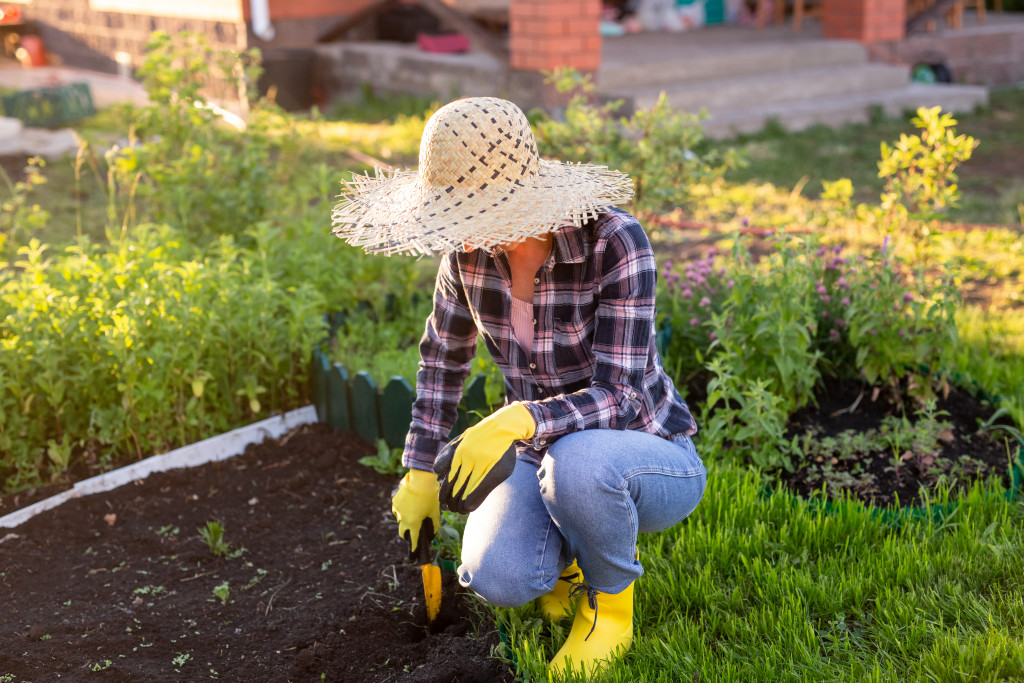- Gardening can reduce stress and anxiety, improve mood, promote physical activity, encourage creativity, and foster social connections.
- Gardening involves physical work, such as digging, planting, and weeding, that helps to burn calories and reduce the risk of depression and anxiety.
- Choose plants that are easy to maintain, water regularly, fertilize your soil, prune and weed your garden regularly, watch out for diseases, and use appropriate tools.
- Tending to a garden is a simple yet effective way to boost mental health and is a rewarding activity that provides many benefits.
Life can be so overwhelming at times, and the demands of modern society can take a toll on our overall well-being. When you are overworked, stressed, and mentally exhausted, you need something to help you recharge and improve your mental health. Tending to a garden – whether an indoor mini-garden or an outdoor vegetable patch – is an excellent way to achieve mental clarity, reduce anxiety, and induce relaxation. This article will examine how gardening can benefit your mental health and how to take care of your garden to make the most of this activity.
Benefits of Gardening
Gardening reduces stress and anxiety.
Gardening has been found to calm the nerves and reduce stress. A study conducted in the Netherlands found that gardening for just 30 minutes can lower cortisol levels, indicators of stress. Gardening also promotes the release of serotonin, known as the ‘feel-good hormone.’ Gardening allows you to be present, providing a sense of peace and tranquility amidst the chaos.
Gardening improves mood.
The act of tending to a garden can have a positive impact on your mental health. It gives you a sense of achievement, creating a sense of accomplishment and boosting your self-esteem. Gardening also provides an opportunity for mindfulness and increased awareness of one’s surroundings, leading to a greater appreciation of nature and all its beauty.
Gardening encourages physical activity.
Gardening involves a lot of physical work, such as digging, planting, and weeding. This means that you get to burn calories and work up a sweat, which can improve your overall mood and well-being. Physical activity has been shown to reduce the risk of depression and anxiety, so gardening can be seen as a form of exercise that benefits both the mind and body.
Gardening is a form of creativity.
Gardening allows you to express yourself creatively. You get to choose the plants and flowers you want to grow, design the layout of your garden, and experiment with different techniques. The creative process helps relax the mind, stimulate ideas, and enhance self-efficacy.

Gardening promotes social connections.
Gardening can be a social activity, connecting people with similar interests. It allows bonding with family, friends, or neighbors while working on a shared project. This can help reduce feelings of social isolation and loneliness, contributing to poor mental health.
Caring for a Garden
Choose plants that are easy to maintain.
If you are just starting with gardening, it is best to choose plants that are easy to take care of and not too demanding. Look for native species that thrive in your climate and soil conditions. This will make gardening more enjoyable, as you won’t have to worry about dedicating too much time and energy to caring for your plants.
Water regularly.
Make sure to water your plants regularly, considering the weather and soil conditions of your region. Overwatering can be as damaging as underwatering, so remember to water judiciously and only when necessary.
Fertilize your soil.
Fertilizers are essential for healthy plants. Adding organic matter, such as compost or manure, to the soil can help improve its structure and content. This will provide the necessary nutrients for your plants to grow and flourish.
Prune and weed.
Make sure to prune and weed your garden regularly to ensure optimal growth of the plants. Pruning will help stimulate new growth, while weeding will keep the garden tidy.

Watch out for diseases.
Be aware of any signs of plant diseases, such as spots or discoloration on the leaves. If you spot a diseased plant, it is best to remove it quickly in order to keep the rest of the garden healthy. Even trees are prone to certain diseases and may need to be treated with insecticides or fungicides. A certified arborist can help you with this. They also provide valuable advice on tree care.
Use appropriate tools.
Choose the right tools for gardening to make it easier and more enjoyable. Hand trowels, rakes, and shovels are essential for any garden. Invest in quality tools that will last for a long time, and make sure to keep them clean and sharpened. If you are using power tools, such as lawnmowers or hedge trimmers, make sure to take the necessary safety precautions.
Tending to a garden is a simple yet effective way to boost your mental health. It’s a therapeutic activity that provides many benefits, including reducing stress and anxiety, improving mood, promoting physical activity, encouraging creativity, and fostering social connections. If you are looking for a way to improve your mental well-being, give gardening a try. With the right care and maintenance, you will be able to enjoy the fruits of your labor and reap the rewards of a peaceful mind.
